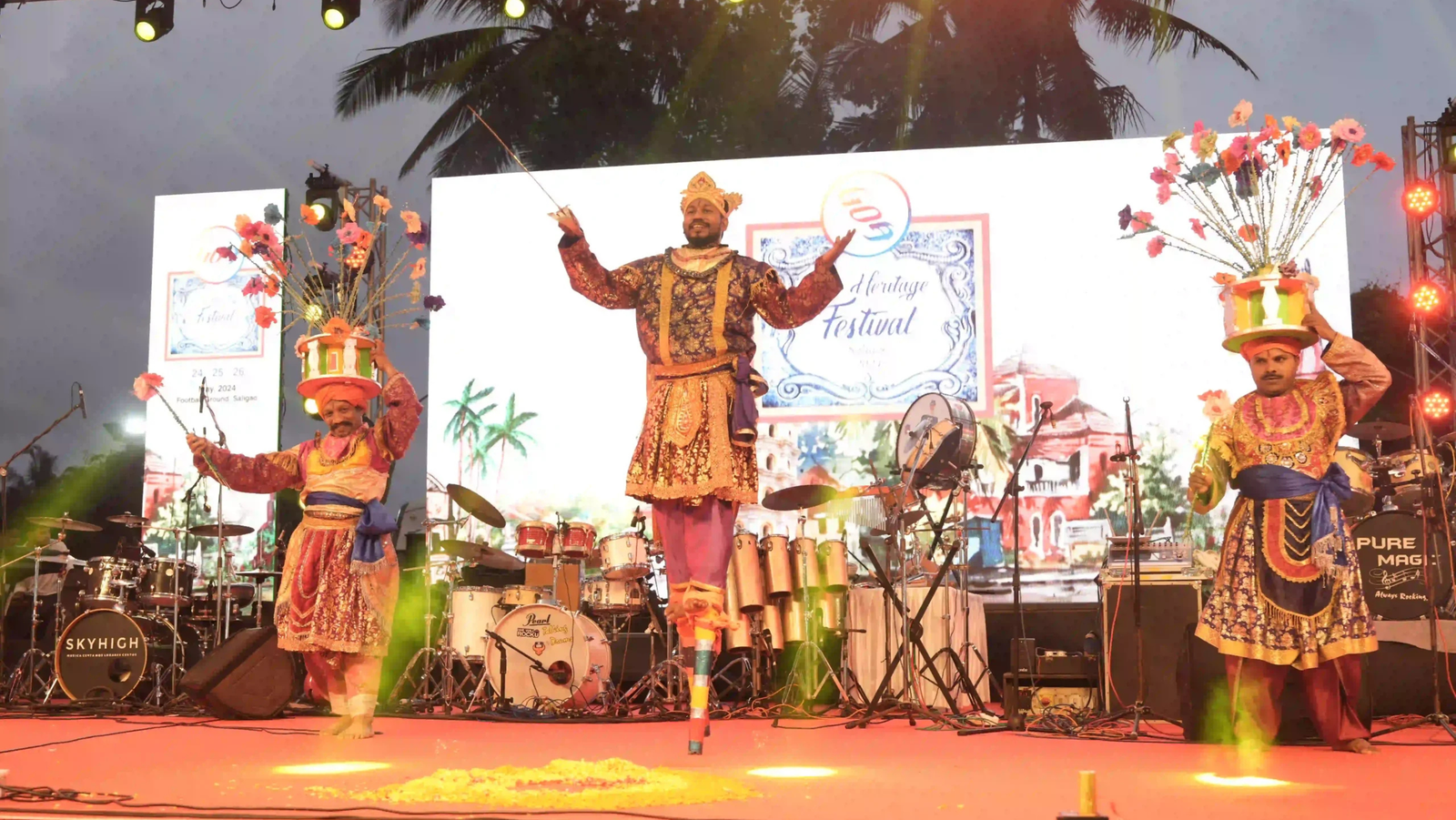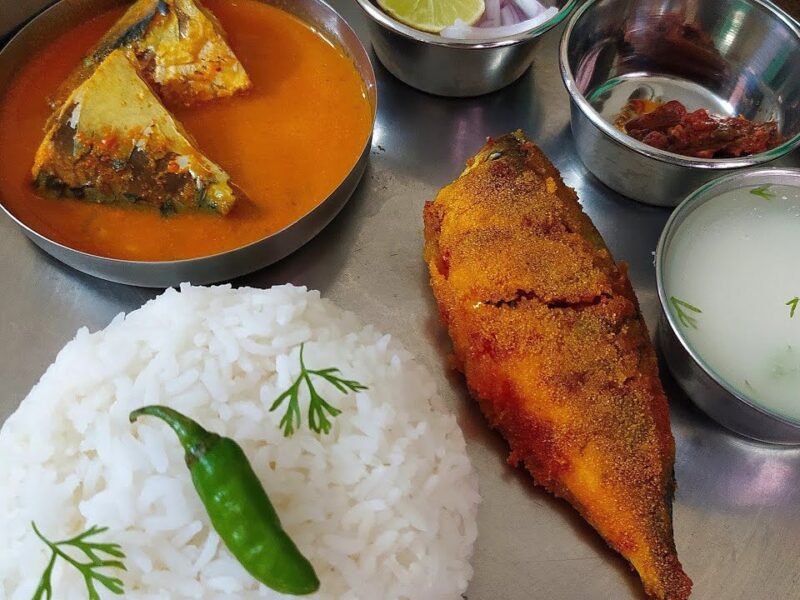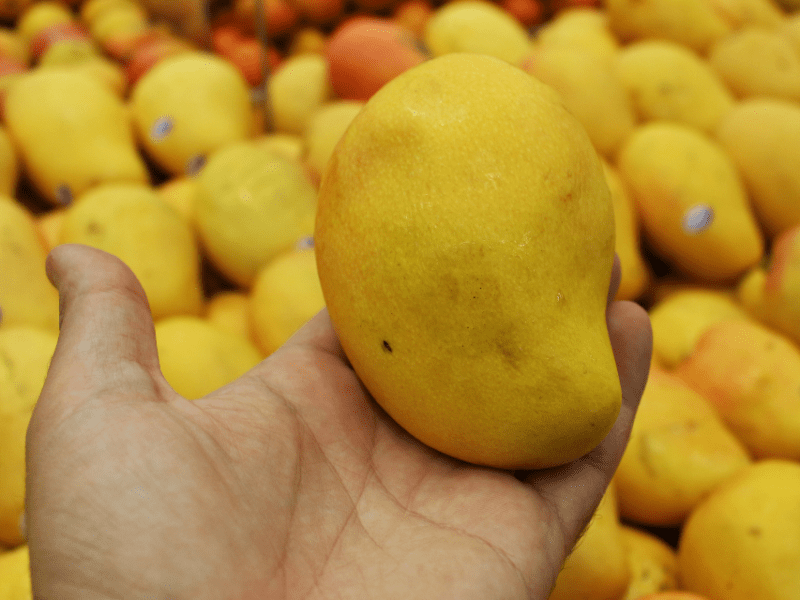Goa is famous for beautiful beaches and wild nightlife but still has a treasure house of unexplored cultural, natural, and architectural wonders. This time around, the legacy takes center stage at the “Heritage First Festival,” aimed to inspire residents and visitors alike to engage with the state’s unique heritage. Heritage First Goa (HFG), a not-for-profit initiative by heritage activists Heta Pandit, Snigdha Manchanda, and Jack Ajit Sukhija, presents this festival that will indulge in keeping the heritage of Goa alive, as well as propagating it through educational and experiential experiences. HFG’s ‘Heritage First Goa’ is scheduled to take place on November 15, and stretches from the stunning shores of Morjim in the north to the green vastness of Rachol in the south, promising a broad canvas for exploration.
Here’s a look at what this festival offers and why it’s an unmissable event for heritage lovers and curious travelers alike.

A Unique Journey Guided by Goa’s “Pilots”
Heritage First Festival Pilots Heritage First Festival presents many exciting things, but their pilots are the most fascinating among them. Heritage curators with plenty of knowledge and passion brought the festival together inspired by Goa’s motorcycle “pilots” that take locals and tourists alike through the state’s winding roads and hidden spots. Twenty-seven such “pilots” are there, deeply connected to the region’s history, culture, or environment. They will lead 32 heritage walks and workshops designed to unravel layers of Goa’s built and natural landscapes, arts, and crafts, and interactive heritage practices.
Snigdha Manchanda, one of the founders of this festival and India’s first-ever certified tea sommelier speaks of the power of storytelling these walks bring. As she feels, each pilot brings unique expertise that helps people create experiences not merely educational, but profoundly personal too. “We want to look at familiar places from a fresh perspective, learn from them, and appreciate them in ways we may have overlooked,” she says. These pilots, many of whom have dedicated years to researching and preserving Goa’s heritage, will invite participants to see Goa’s landmarks not just as picturesque spots but as living records of culture, tradition, and community.
Four Themes for an Immersive Experience
To adequately capture the enormous and diversified heritage of Goa, the festival has been categorized into four heads: built heritage, nature and biodiversity, arts and crafts, and interactive workshops. Each of these themes had been so evolved to cater to the interest of one and all by providing participants with an avenue to explore areas that resonate with them.
Built Heritage: It is going to be an exercise that will show the splendor of Goan architecture, from ancient temples and churches of the colonial era to Goan traditional homes and mansions. The walks will be guided by experts, which would help understand how influence works in shaping Goa’s architecture – often drawing together local and Portuguese styles in unexpected ways. A walk among these iconic buildings is going to be a testament to the resilience of a people in being able to adapt to change even as modernity transformed the landscape and made way for numerous other developments.
Nature and Biodiversity: The richness of the natural and biodiversity heritage of Goa is as profuse as its cultural heritage. From coast to forest, Goa is an extraordinary variety of flora and fauna, so the thematic call is to an even deeper engagement of sorts with these ecosystems in renewed awareness, native biodiversity, the role of conservation, and a vision of the dynamics of this natural environment with Goan identity. Tours can include animal entry into the wildlife sanctuaries, mangroves, and beaches, teaching one about the peculiar ecosystem of the area and the living animals that keep it functional.
Arts and Crafts: Like the landscapes, the artistic legacy of Goa is vibrant. This theme comes alive with traditional handicrafts and music, visual arts in innovation and creativity, and even enters the realms of getting in touch with local artisans and creators who have preserved these traditions for centuries. From the intricacies of bamboo crafts to bright azulejos that dress the walls of each Goan house – this theme gives us a glimpse of craftsmanship, the defining feature of Goa’s heritage. Workshops could be hands-on where the person learns to try their hand at such crafts, thereby appreciating the depth of skill and artistry involved in it.
Interactive Workshops: The festival also celebrates learning by doing. It runs a series of workshops on various themes like sustainable farming, culinary heritage, traditional Goan dances, and seasonal produce. Each of the interactive workshops can engage a participant with heritage in a very personal manner, offering an insight into everyday practices that have been passed down through generations. Whether it is learning the art of making a traditional Goan sweet, learning about the principles of organic farming, or just soaking in the rhythms of Goan life, these sessions promise to be a sensory immersion.
Why You Shouldn’t Miss It
For anyone who thinks they are travelers, not tourists, Heritage First Festival is a first in all those experiences. It’s a call to be integral and alive with Goa’s spirit: its art, its architecture, its landscape, its culinary tradition. It feels much more than going around sightseeing; it invites the participant into the heart of Goa’s heritage connections born there linger long after the thing is over.
Heritage is not only something we look at but something we live. Heritage is something from which we resound, as the curators of the festival remind us. In November, Goa invites you to walk its storied paths, breathe in its traditions, and rediscover its essence. It may be your first time, or perhaps you have been returning for years, and Heritage First Festival promises a journey sure to leave you with more appreciation for that remarkable corner of the world.



